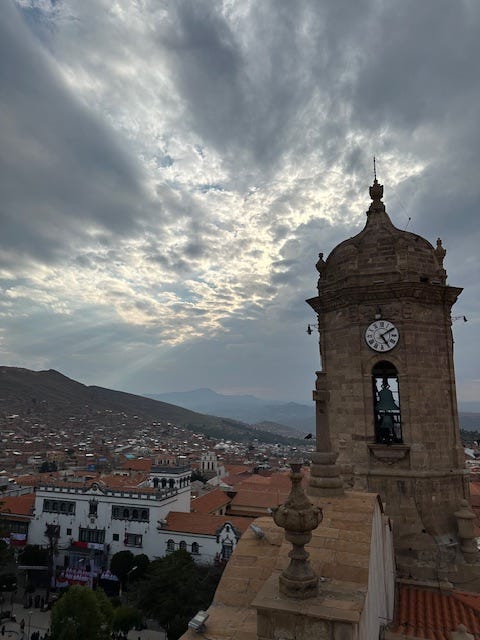The Netflix production of Anthony Doerr’s book All The Light We Cannot See is definitely worth a watch. It comes to us in only four episodes, telling a gripping story of a young blind woman and a youthful German soldier (aka WWII) whose lives are linked by their shared love for a shortwave radio program having the theme of light, hope and love (in the dark world of Europe in the 1940’s a needed message).
Both the blind girl Marie and the German soldier Werner have the ability to perceive light (truth) in a way that the staid European mindset of the day is not able to grasp. Where the status quo places things tightly in prescribed places, Marie and Werner are able to envision a new world that transcends the rigidity of the masses, shown as Marie casually discards the priceless diamond the Sea of Flames into the sea which has cost her loved ones so much pain.
A tangential connecting point for me is found in the parable of Jesus that portrays the vineyard owner paying out the wages to his workers at the end of day Matt 20: 1-16. If you haven’t read it for a while, let me remind you how the story goes. The owner hires a number of day labourers to work in his vineyard, some beginning early in the morning and others starting at various times throughout the day and well into the evening. At the conclusion of the work day all of the labourers are paid the agreed upon amount of one denarius. Of course, those who started working from the early hours begin to complain that they have been underpaid as the ones who worked far less have been paid the same sum. The owner has none of it. He reminds them that he has justly paid them and as the owner he can do whatever he wants with his own money. End of story.
Now the parable’s point is that the logic of the kingdom does not always square up with the illogic of humanity. God sees things with a greater degree of light than we as his poor creatures are able to muster. We get bent out of shape over all kinds of theological minutia because we can’t penetrate the greatness of God’s receptivity to light. What doesn’t make sense to us makes perfect sense to God. We say, “Things are unfair,” echoing the vineyard workers, and God says “Get a grip.” We say “It can’t be!” and God says “Why not?”
It’s like unsighted Marie having the capacity to take in more light than the sighted folk who live all around her. Insight—the ability to see into things—seems to be a gift that Jesus has in spades. The parable ends with the vineyard owner saying to the grumblers, “Are you envious because I am generous?” (v. 15) which literally reads “Do you have evil eyes” (malos ojos) because I choose to pay my workers as I wish?
Questions for us all to consider:
What is the quality of our seeing? Do we have “evil eyes” or receptive eyes? Is it possible for us—even a little bit—to perceive the magnanimous qualities of God’s massive field of light?





Hi Alan,
I saw this on Netflix and it is well worth your time to watch it. Tha KS for posting.